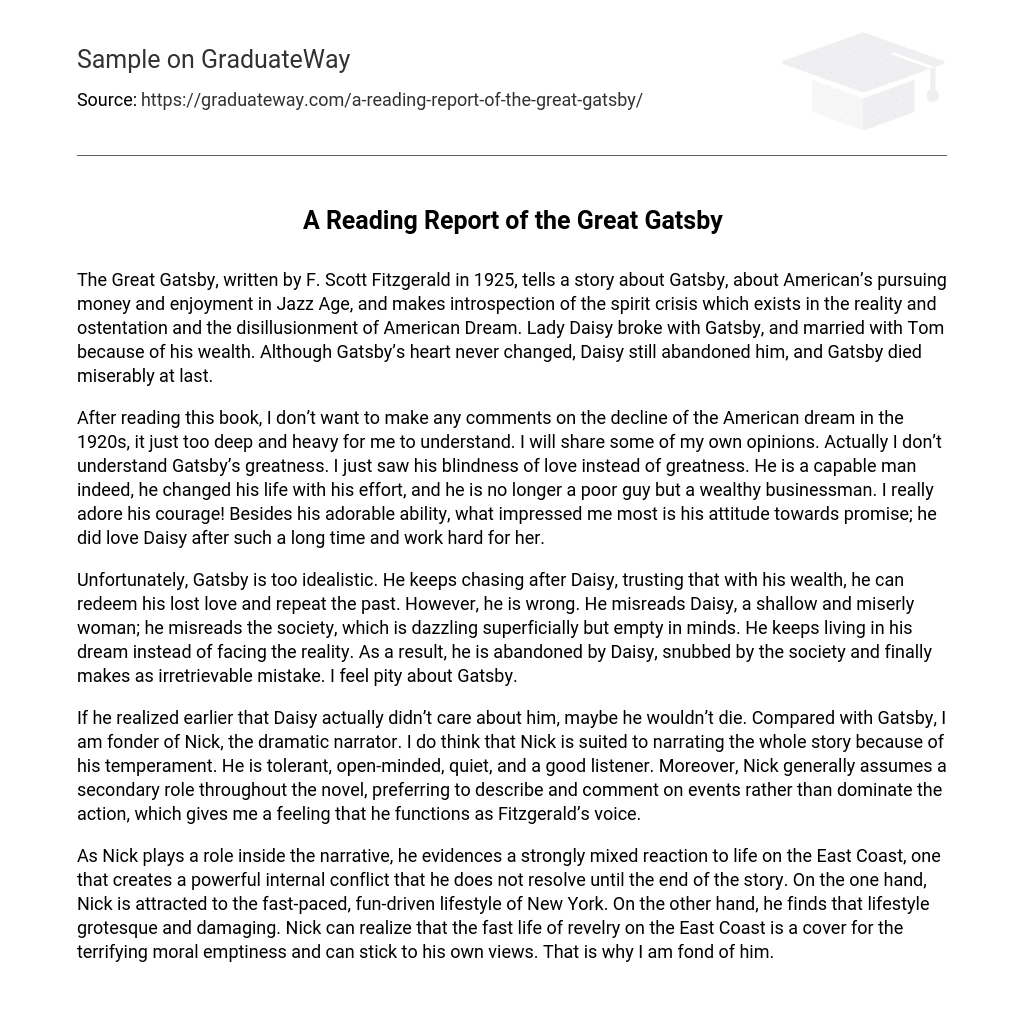Written by F. Scott Fitzgerald in 1925, The Great Gatsby examines the American pursuit of wealth and pleasure during the Jazz Age, while also exploring the crisis faced by individuals within a society defined by extravagant displays and the disappointment of the American Dream. As Gatsby passionately loves Daisy, she chooses to marry Tom because of his fortune, causing Gatsby’s heartbreak. Despite his enduring love for Daisy, she ultimately betrays him, resulting in his tragic downfall.
Although I am unable to fully grasp the depth of the decline of the American dream in the 1920s after reading this book, I will share my personal opinions. Rather than recognizing Gatsby’s greatness, I only see his blindness in love. Nevertheless, his ability to transform his life from poverty to wealth as a successful businessman through sheer determination is truly remarkable. His courage is inspiring! What struck me the most, however, is his unwavering commitment and long-lasting love for Daisy.
Regrettably, Gatsby’s unwavering pursuit of Daisy and his belief that his wealth can revive their lost love and recreate the past is excessively idealistic. However, his perception is incorrect. He mistakenly views Daisy as shallow and money-driven, while also misjudging society as superficial despite its surface allure lacking profound depth. Rather than facing reality, he persists in residing within his imagined world. As a consequence, Daisy abandons him, society rejects him, and ultimately he commits an irreversible error. I profoundly empathize with Gatsby’s predicament.
If Gatsby had realized sooner that Daisy didn’t truly love him, perhaps he could have avoided his tragic demise. Personally, I am more fond of Nick, who serves as the dramatic narrator. I believe that Nick is an ideal choice for narrating the entire story due to his temperament. He is patient, accepting, observant, and a skilled listener. Furthermore, Nick typically takes on a subordinate role in the novel, preferring to depict and analyze events rather than taking center stage. This gives me the impression that he serves as Fitzgerald’s voice.
Nick’s role in the narrative is characterized by a conflicting reaction to life on the East Coast. This internal conflict remains unresolved until the end of the story. While Nick is drawn to the fast-paced and fun-driven lifestyle of New York, he also finds it repulsive and harmful. He recognizes that the seemingly exciting lifestyle is merely a facade for a disturbing lack of morals, but he remains true to his own beliefs. It is this strength of character that makes me fond of him.





